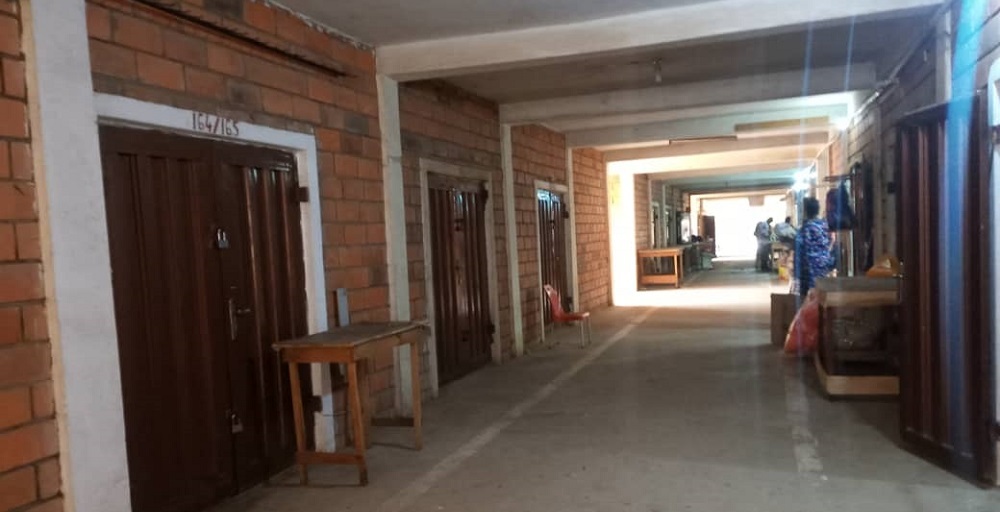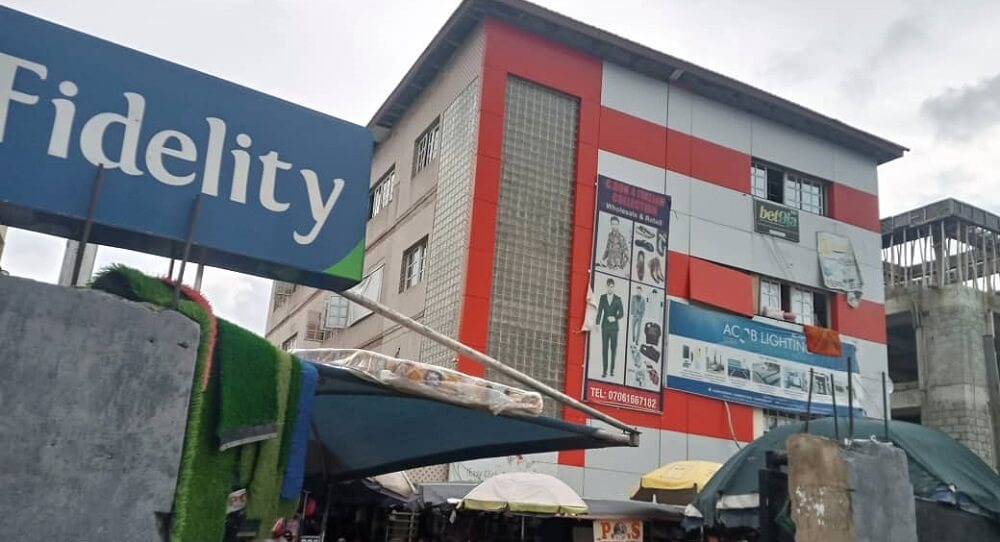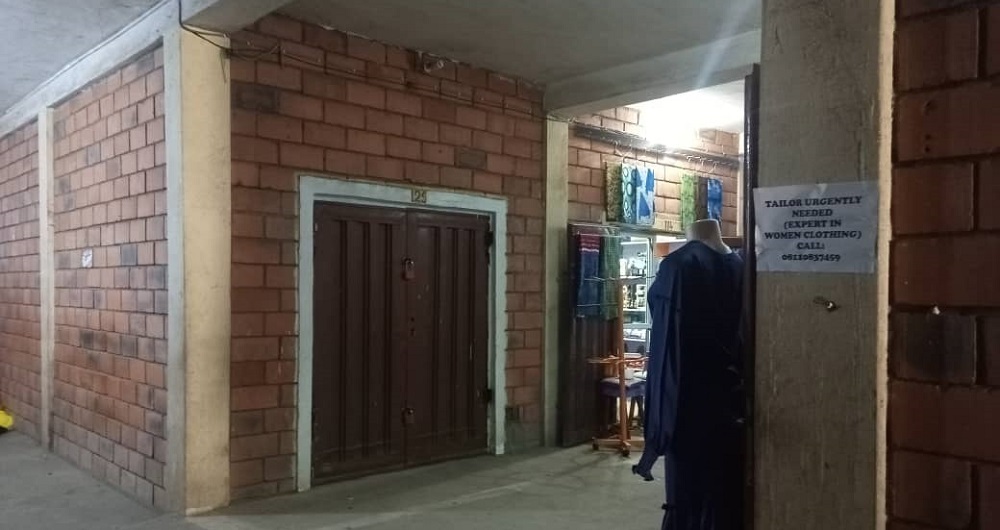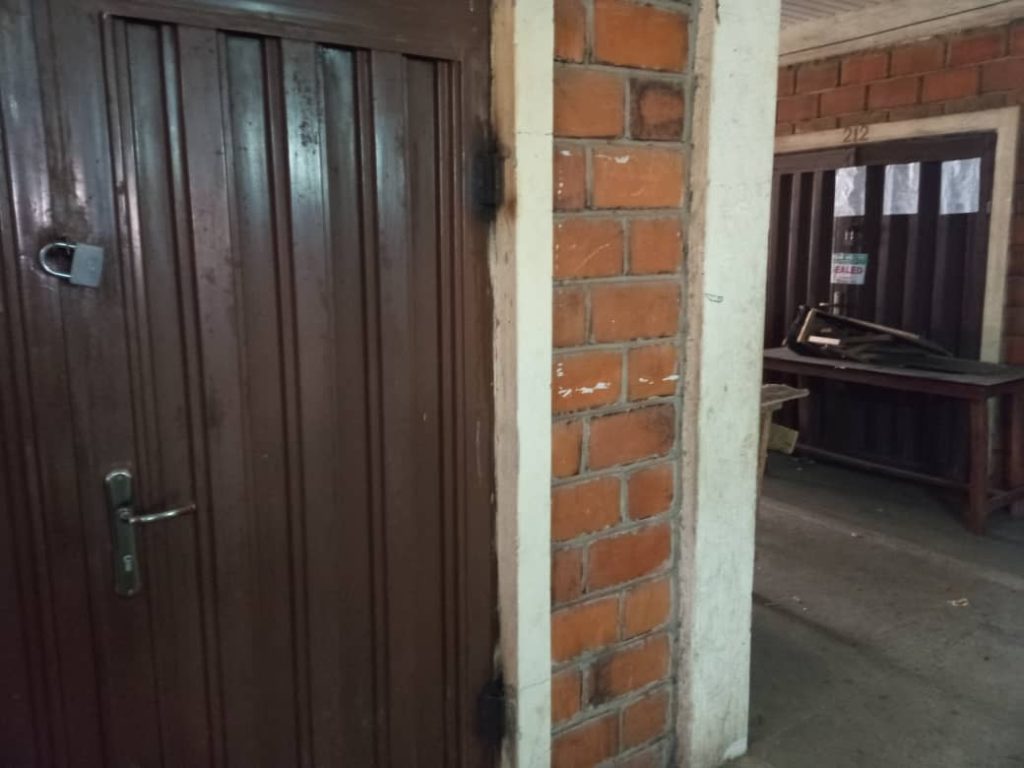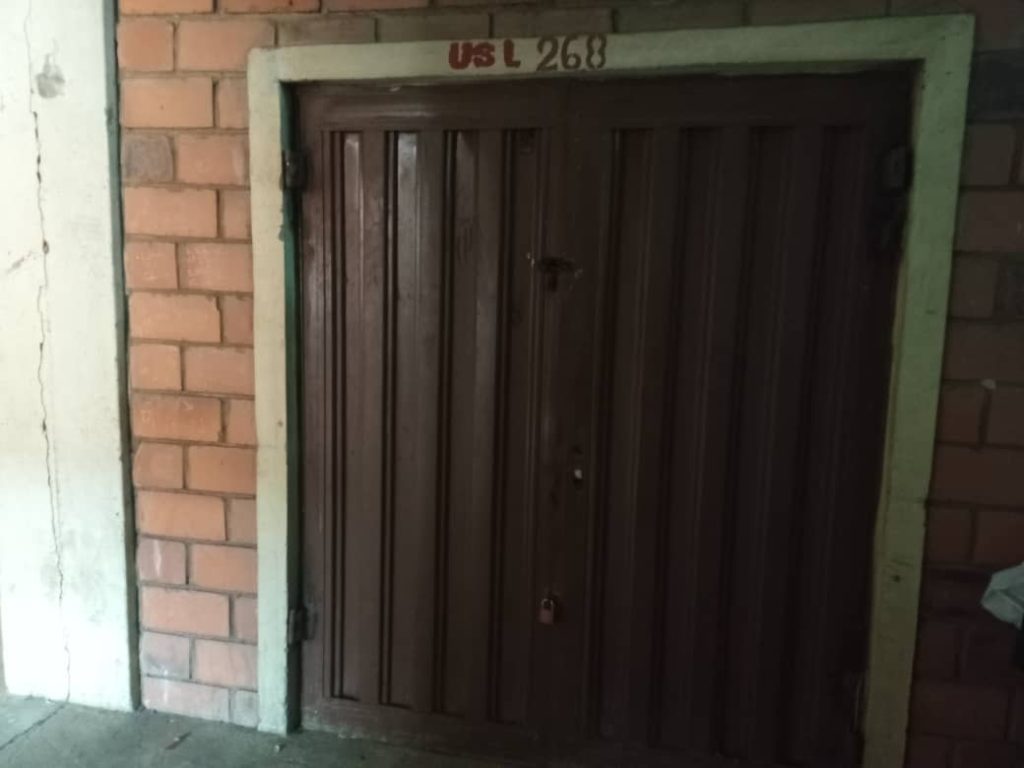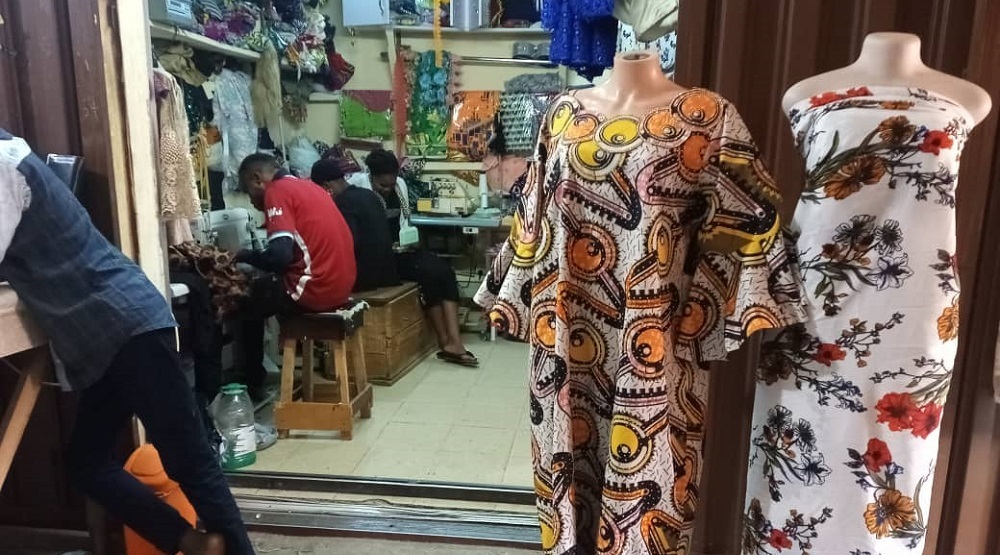Abuja Traders Battle Hard Times, Take Bank Loans To Settle Shop Rents
Traders in Abuja, Nigeria’s capital city are struggling to remain in business. While some have totally embraced online trading and no longer sell from rented shops, many still operate from expensive shops in the city’s many markets where yearly rent is from N1m to about N3m.
Shops may be highly stocked up in any of the Abuja markets, but their owners are highly indebted to banks, landlords or suppliers due to the economic situation, especially since the outbreak of the covid-19 pandemic last year.
Advertisement
At the Rochas Plaza in Wuse market, shop owners close to the gate pay as high as N2.8m, while those who stay a little bit farther from the gate pay N2m.
Those who occupy the first floor pay N800,000, while prices of the second floor is between N500,000 to N800,000 depending on its position.
Inside the Wuse market, shops close to the gate are rented for up to N2m, while in some lines, it cost between N1m to N1.9m– a factor that is determined by how customers frequent the areas.
Blessed Line in Wuse market, a full shop now costs as high as N2.4m, while a quarter shop (quarter of the space) is about N500,000. A “show glass space” costs between N150,000 to N200,000.
Advertisement
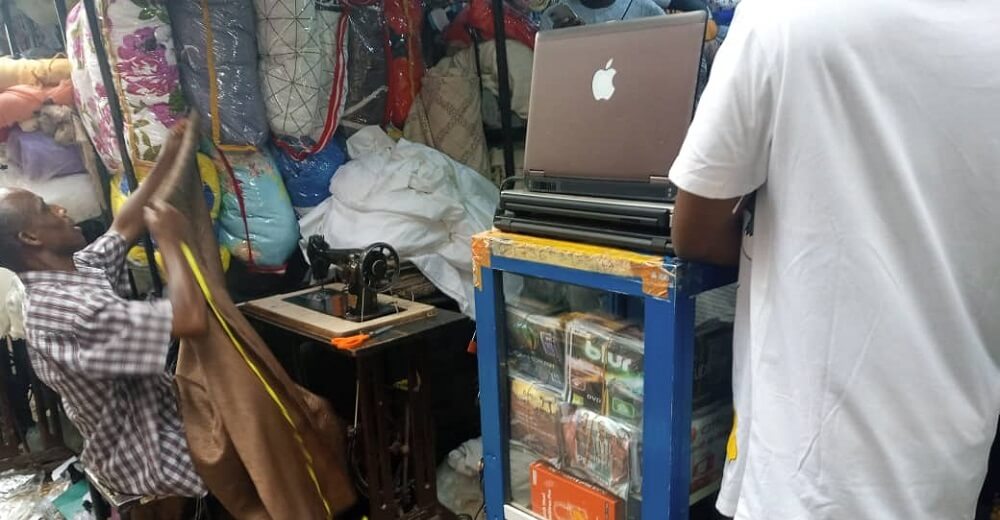
We Have To Borrow To Pay Rent Blessing, who owns IUS Investment at Rochas Plaza, Wuse Market, pays a rent of N2.8m yearly. She has been at the market for about four years and the rent had continued to increase every year.

Rochas Plaza, Wuse Mrket Abuja
The trader, who sells boxes and assorted travel bags, said survival has been difficult, especially since covid-19. She said sometimes for weeks, she’s unable to make any sales despite her best marketing efforts.
To pay her shop rent she said, “We have to make some contributions and take loans, because if you depend on making one huge sale that can measure up with the rent, it is impossible. Shop is really expensive and what we normally do to meet the annual payment is either to have a bank where you save some money and make sure you are not touching it no matter what comes up till the year ends.
Advertisement
“At times dull business will not let you meet up with payment. The option you have is to take a loan. When you take out a loan, it becomes a double punishment for you. You have to start selling to pay for the loan you have collected and you still have to be saving against the next rent.”
She said sometimes it could take 3-5 years to come out of a loan.
For Humphrey, who sells children’s shoes in two shop spaces sublet to him in the market at N400,000 and N700,000, survival is not any less easier. He also has to borrow from friends or get a bank loan.
He told THE WHISTLER: “It is not palatable. Sometimes you will save rent and reinvest into the business. If anybody tells you that he has saved up to N800,000 from his rent assuming it is N1.1 million, it is a story.”
At the Garki International Market, owned by Urban Shelter, many shops were locked on Thursday, August 19, when THE WHISTLER visited. Although rents are cheaper here compared to Wuse market, it was gathered that the shops were locked due to default in rent payments.
Some of the shops were bought from the company and rented out by their new owners who massively increase the rent by more than 100 percent.
Advertisement
In some blocks close to the roadside, owners pay N210,000 if they rented directly from Urban Shelter or N350,000 if from a third party.
In more highbrow blocks, double shops from Urban Shelters cost N600,000 while shops not controlled by the company are rented N800,000.
Bunmi, the owner of Rozleos Children Place at the El-Rufai block who spoke to THE WHISTLER said she has two shops which cost her N350,000 and N700,000 yearly excluding the service charges of N20,000 and N60,000 respectively.
She has been at the market for over three years, but business has been “terribly slow.”
According to her, paying the rent has not been easy as she takes bank loans to settle her rent when she is not able to meet up with the due date.
She said, “It has not been easy honestly. Even getting the loans, sometimes, are not even friendly. Paying back loans when business is not moving is not easy, but some of the banks understand. I still owe the bank that gave me a loan during the pandemic. I have not finished paying back the loan.
“Also to survive the cash crunch in the market, she either sells on credit or reduces her profit margin so that the goods can be sold quicker.
“Let’s say you use a loan to purchase these items now, you now have to sell it, the item is not moving and the loan interest is increasing. Sometimes I find it difficult to understand how I am still surviving the harsh economic realities.”

Zam Fashion Designing, Modibo Block, Garki International Market
Owner of Zam Fashion Designer, Abdulmumuni Zubairu , also said business is tough and it’s difficult to pay rent. He has a single shop on the first floor of a block where he pays N350,000 yearly.
His rent is due this month and he said, “Honestly, before the lockdown we were able to pay as at when due, but currently we have lost many of our customers and a lot of us are finding it difficult to pay the rent.”
He disclosed that he makes N500 daily contributions in order to meet up with the rent payment, but sometimes he’s unable to make the contribution for two or three days due to lack of sales.
In the satellite towns, the story is similar. At Dutse Market in Kubwa area, rent costs up to N1m or more depending on the location and size.
A shop owner (name withheld) who sells utensils told THE WHISTLER that he pays N500,000 annually, but forced to take bank loans or buy goods on credit to keep the shop.
“Sometimes I have to take a little loan from my bank to settle my debt. My suppliers also give me credit,” he said.
Across markets in the Federal Capital Territory, many shop owners are compelled to sublet part of their shops to raise money for rent, with some subletting a little space for as high as N400,000 or N700,000 and as low as N50,00 depending on the market. Some had sack their sales staff to cut cost.
Financial Expert Offer Solutions A professor of Development Economics at the Ahmadu Bello University, Zaria, Peter Njiforte, who spoke on the issue said there is urgent need for the government to address rent issues across the FCT as it is contributing to the high cost of goods.
Njiforte said, “I have raised issues on the rent generally in Abuja not just for the shop spaces. The rents are too exorbitant. The government is supposed to intervene to regulate so that traders can afford to pay and that will make them not to hike the price of their goods.
He said traders who hike their prices do that because they need to pay up their rents.
“But if you hike the price, people will look for alternatives. I think that is why markets like Suleja have relatively cheap goods. But without alternatives, people have to buy at a high price. “
In his view, shop owners who hike their prices may lose their customers while those who sell at the normal price tend to retain their customer base.
On the issue of using bank loans to settle shop rents, he said traders are at liberty to go for loans if it is the only option they have.
“As a businessman, you need space. If you are strong enough to settle rent without a loan, good and fine, but if you don’t have any option, you must go for the loan,” he advised.
This special report was supported by the Civic Media Lab, Lagos.


